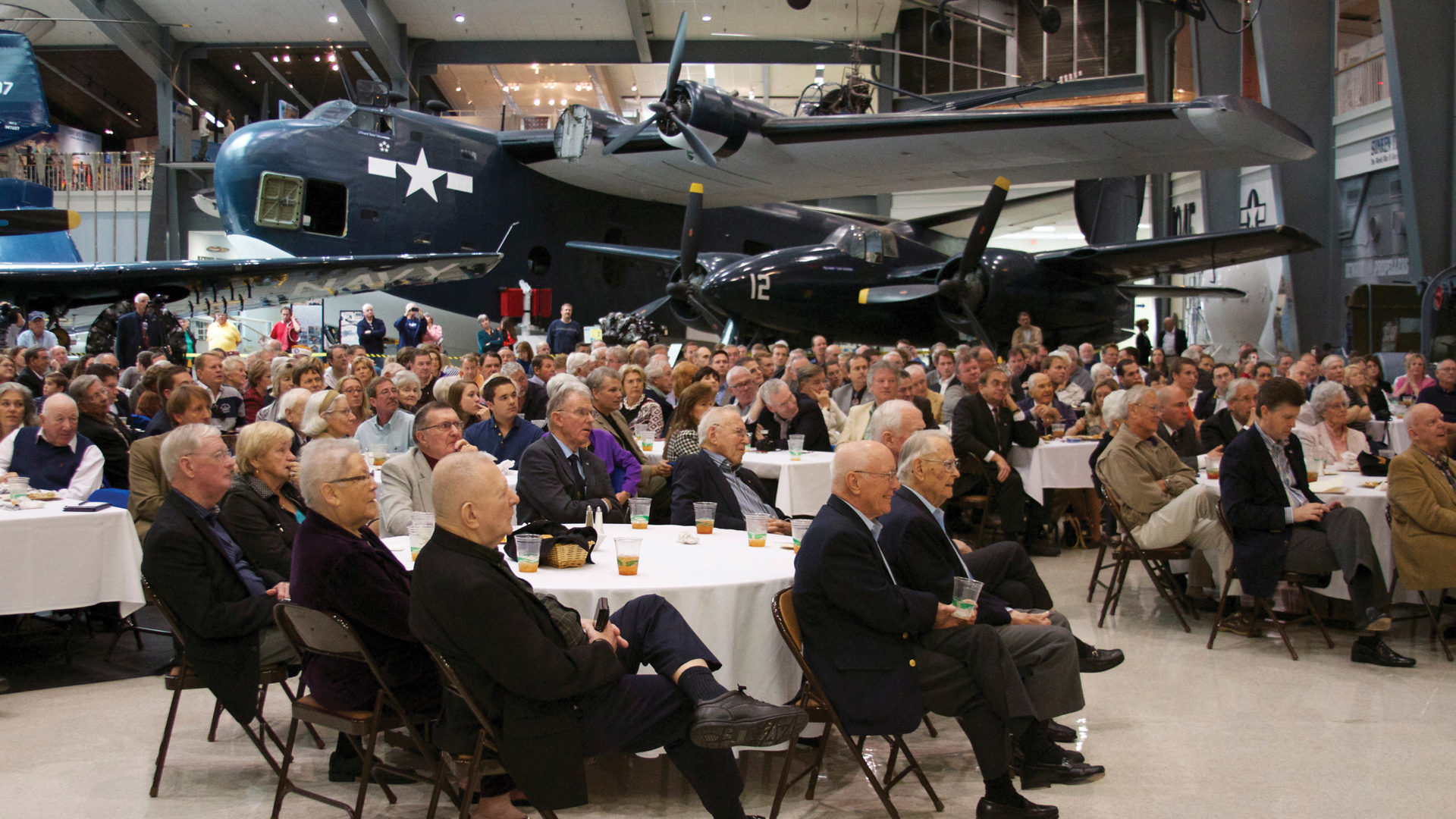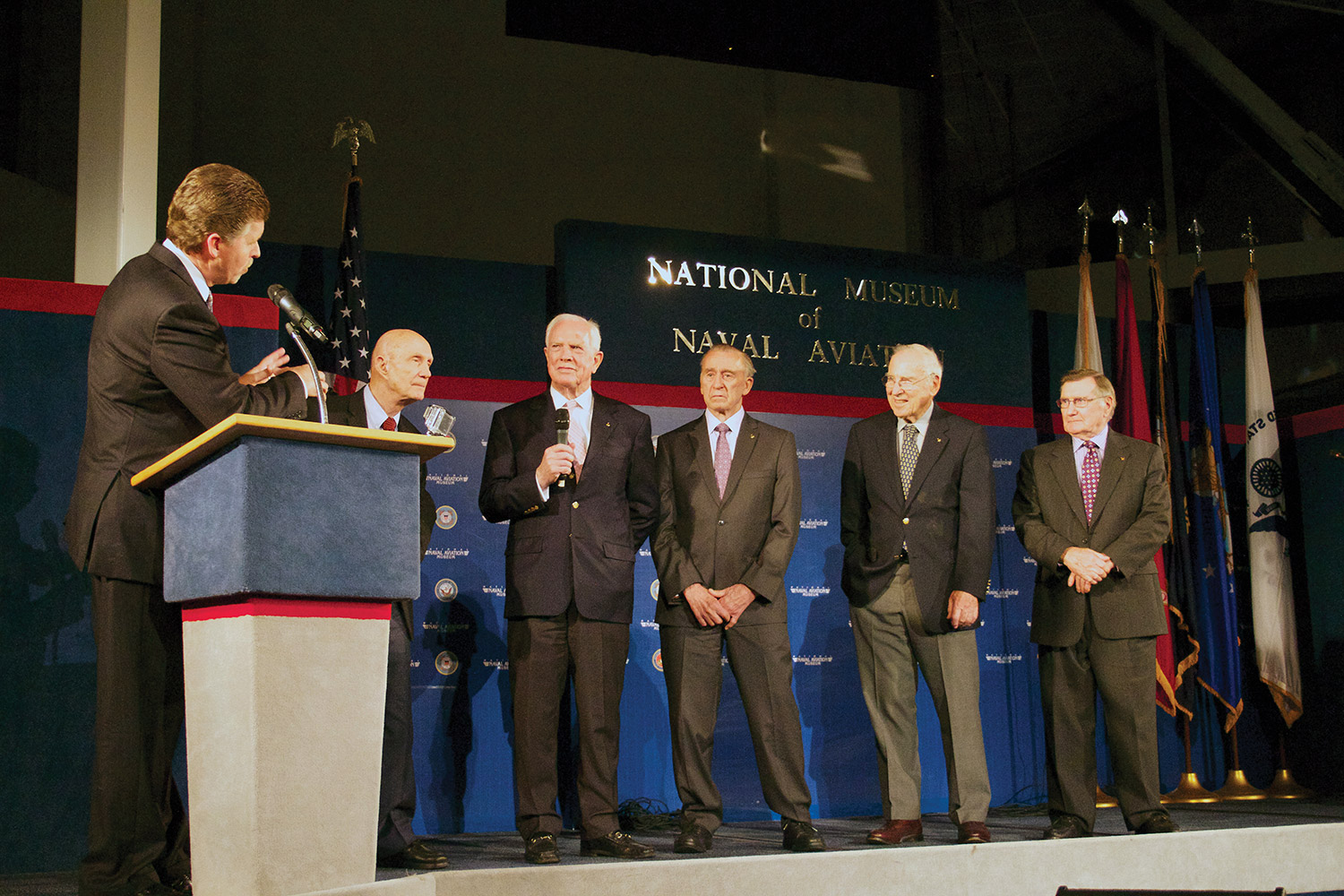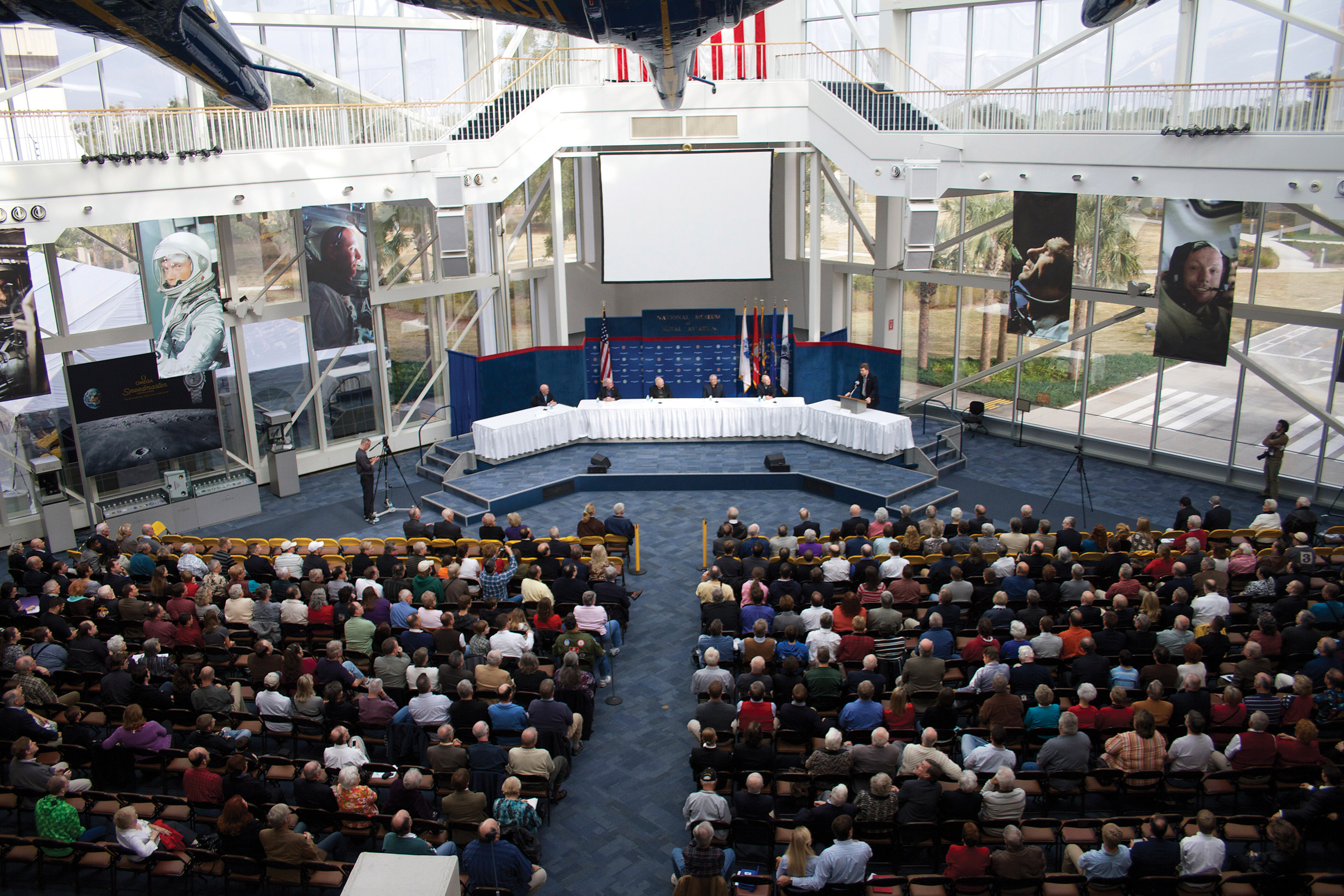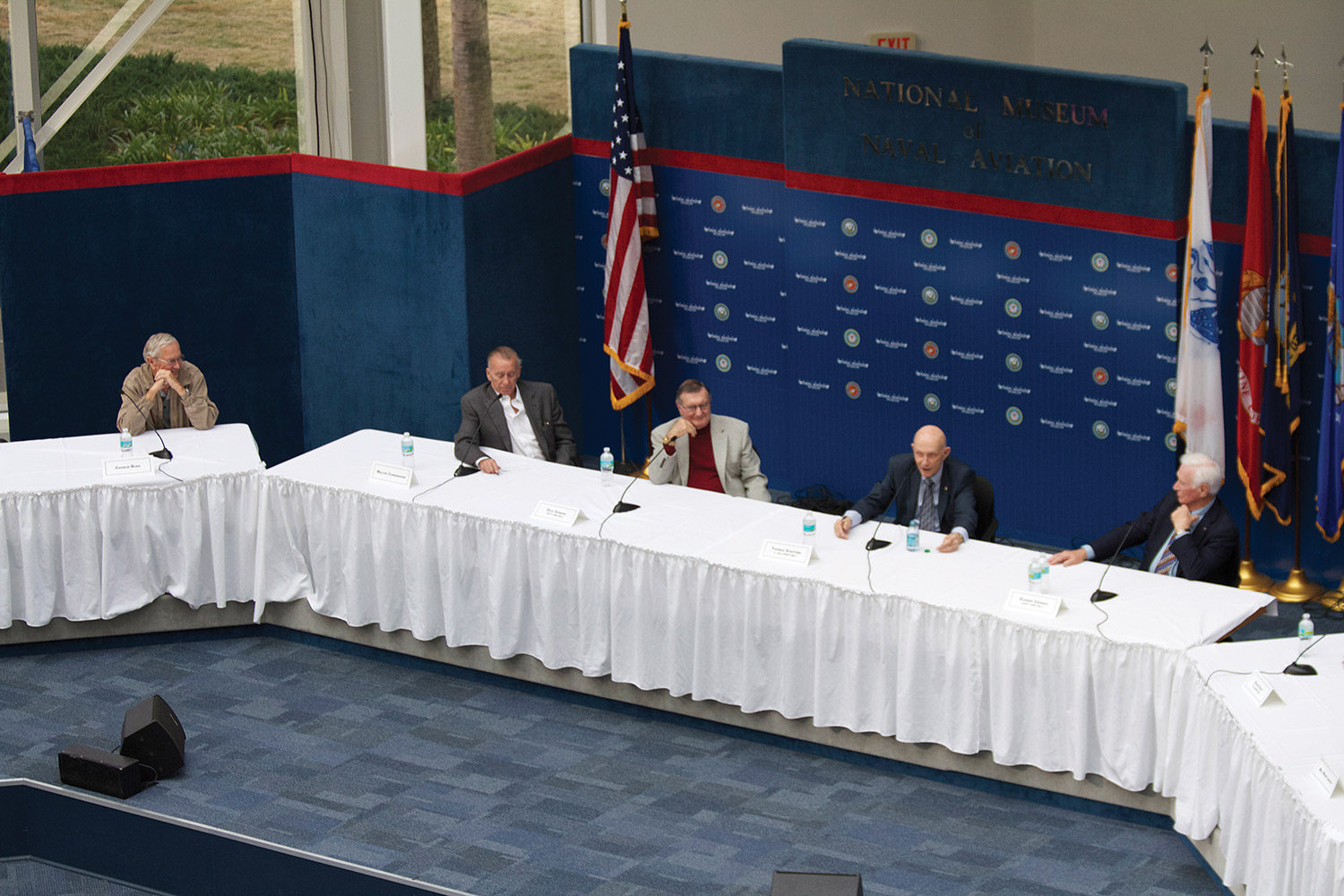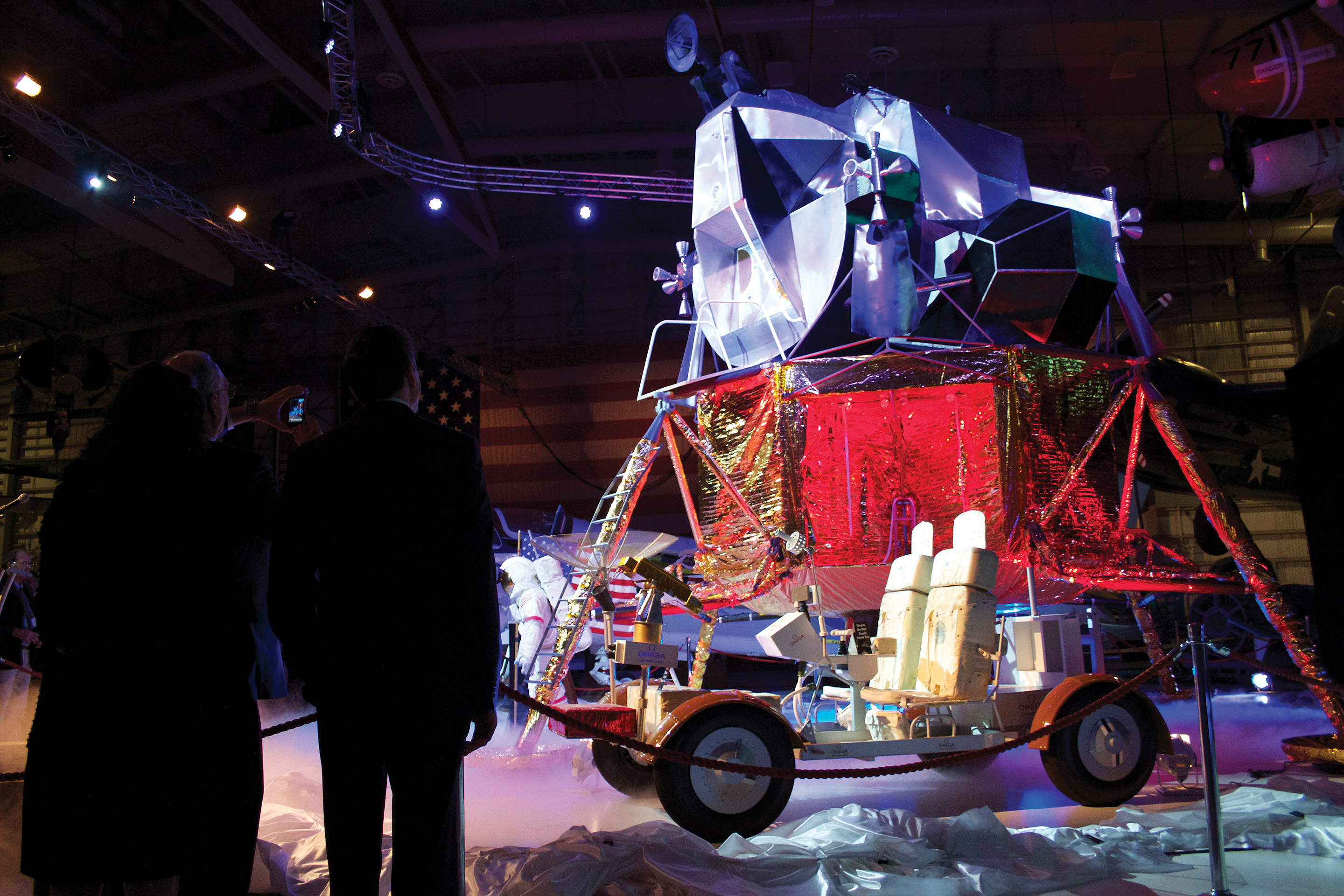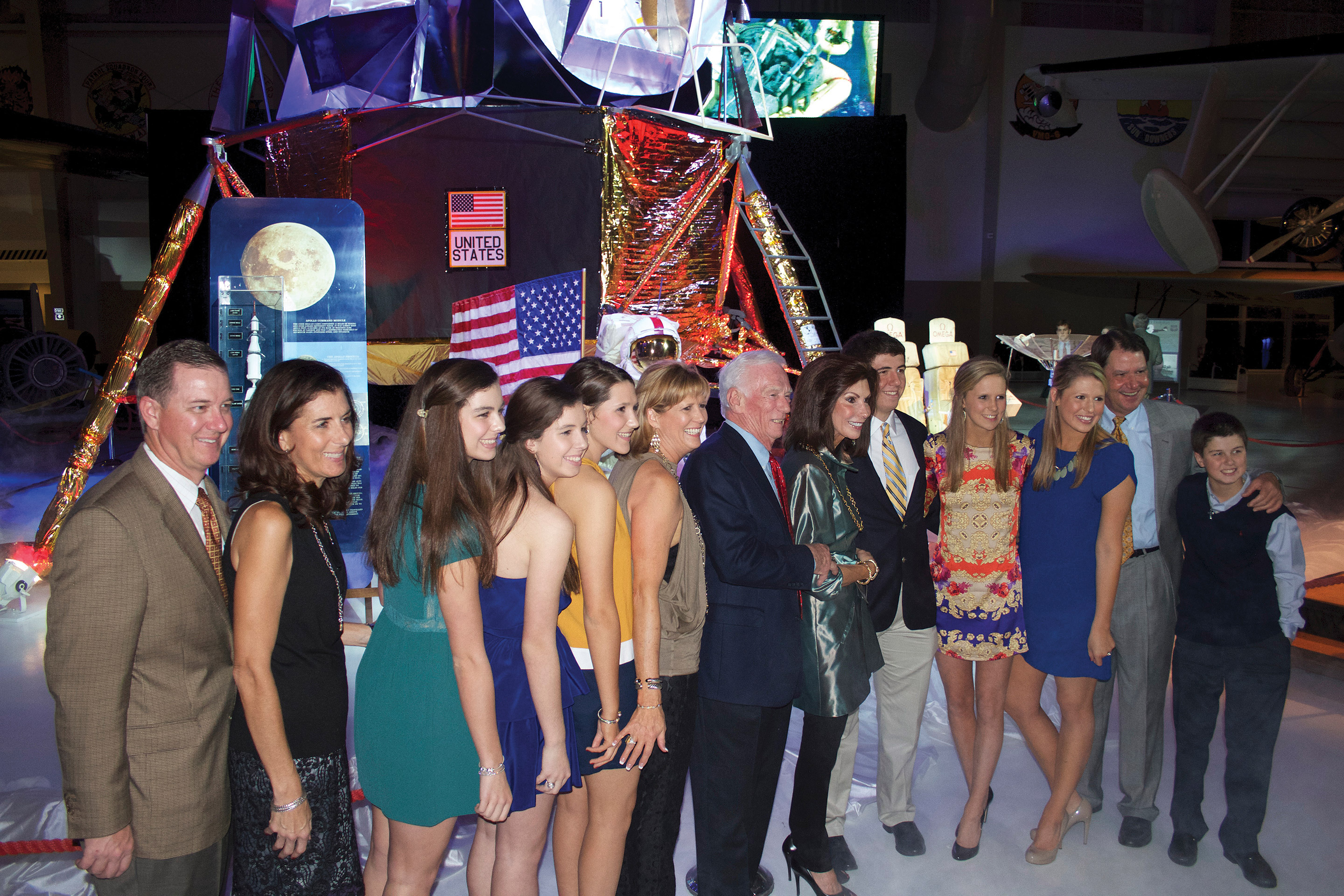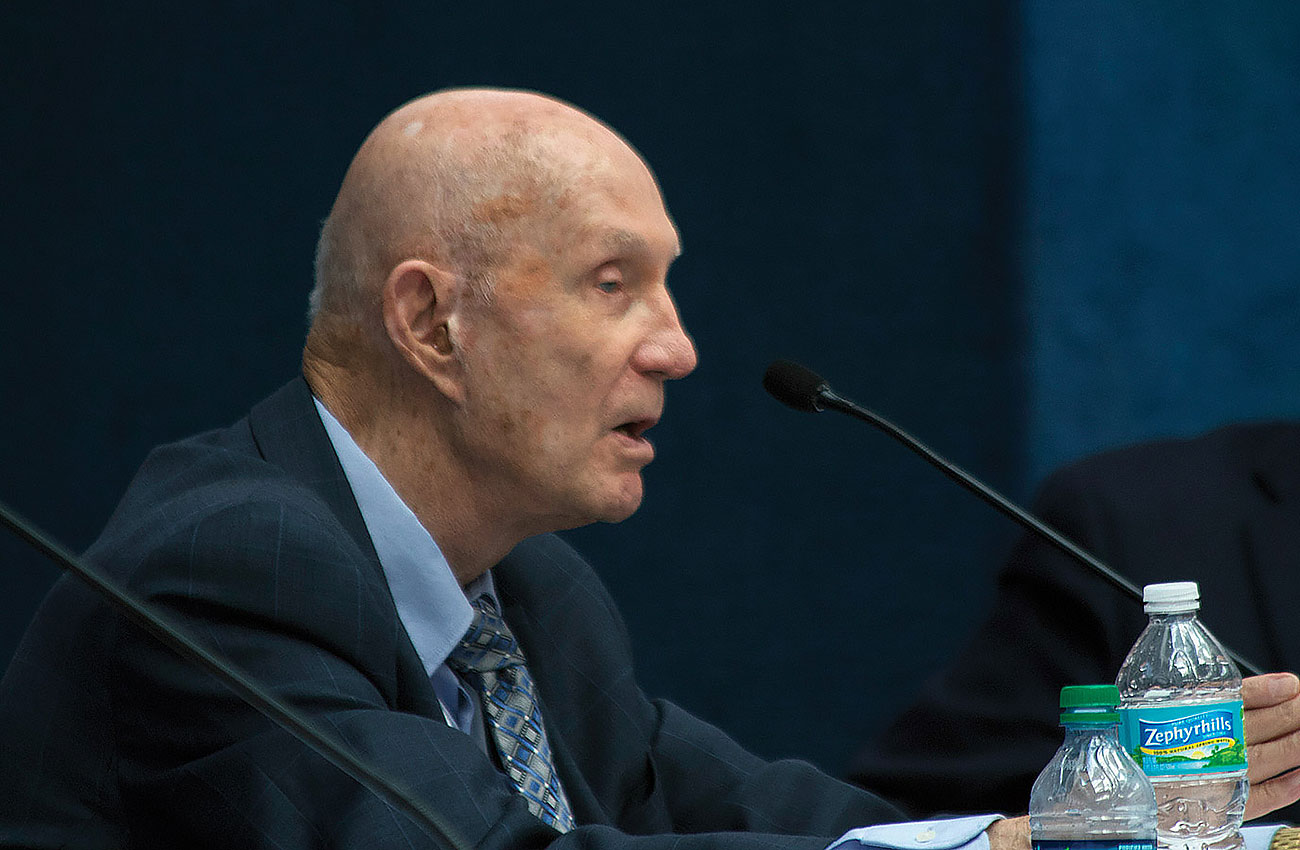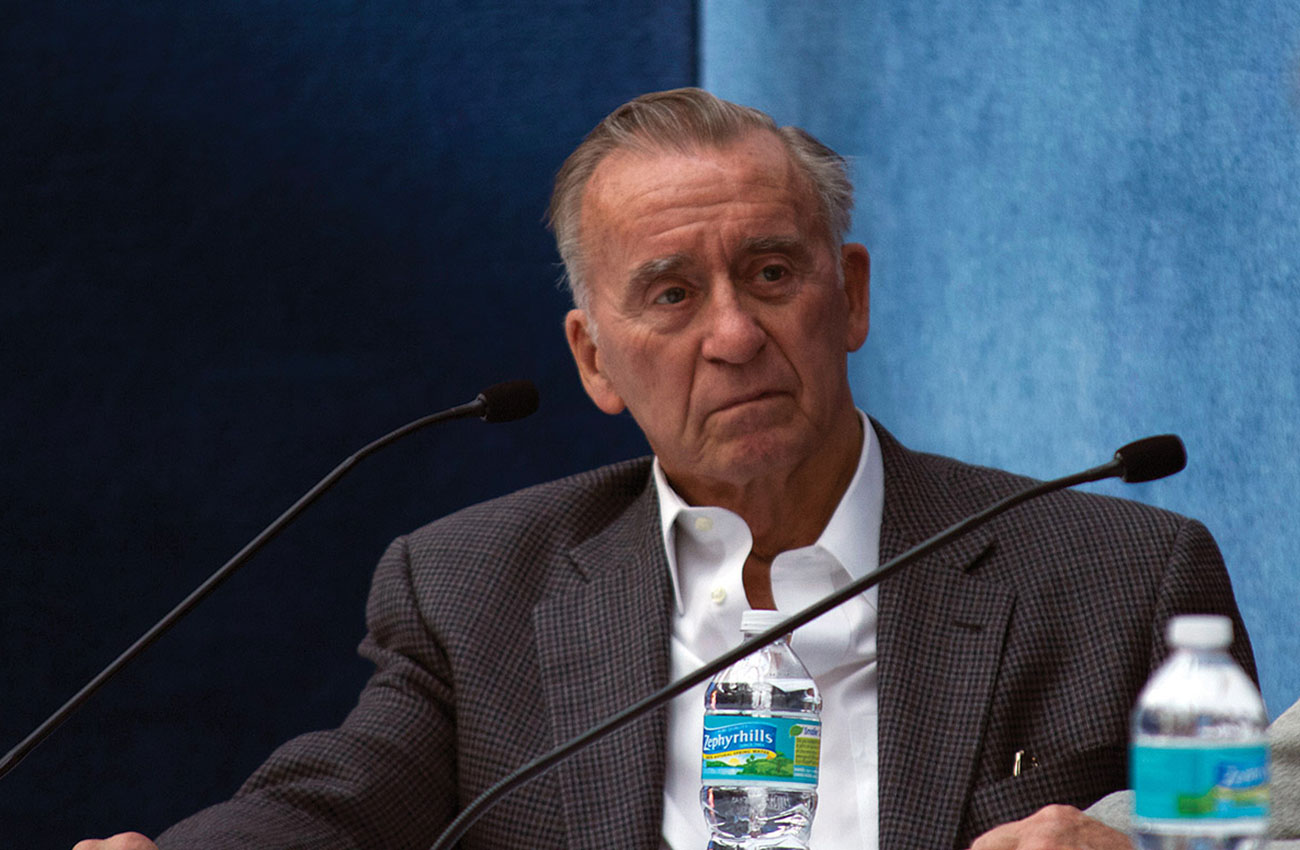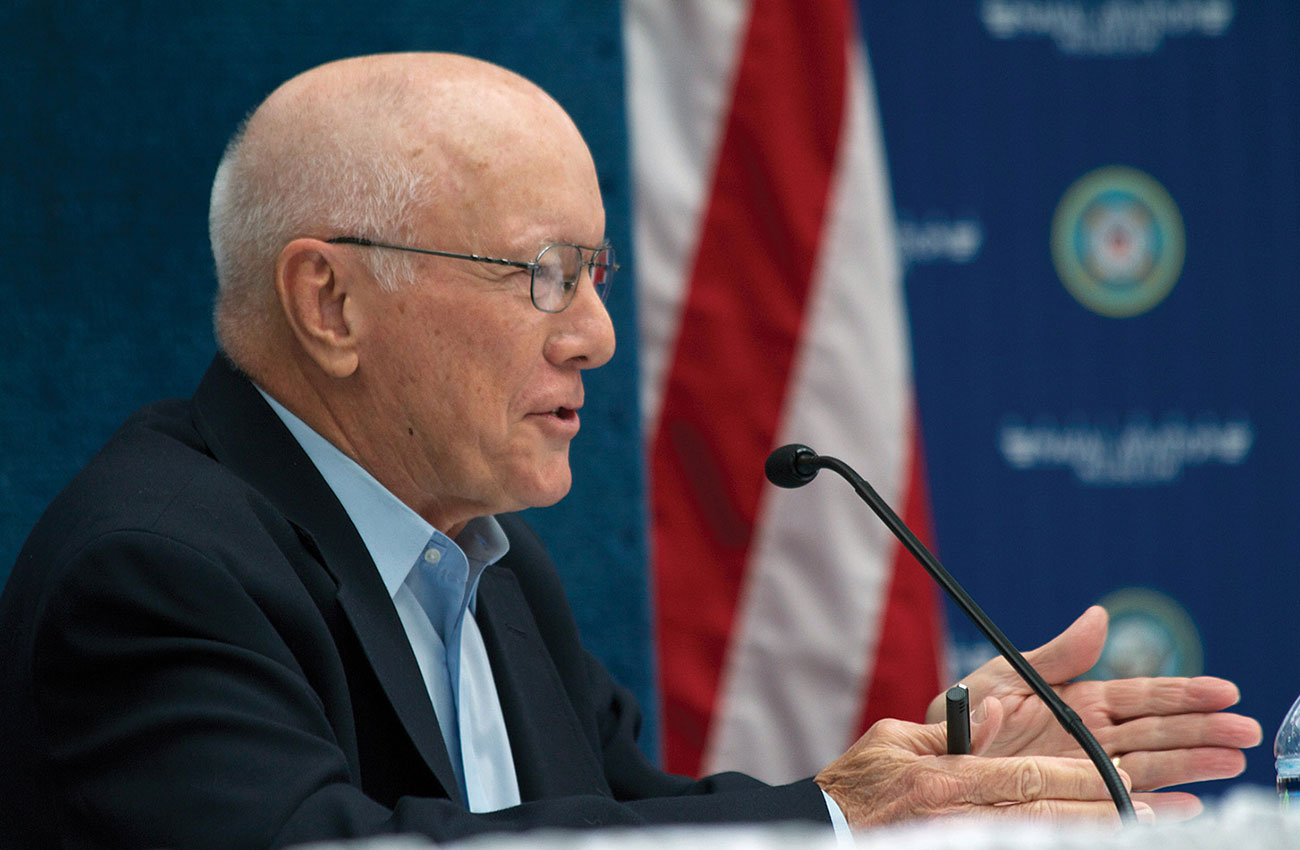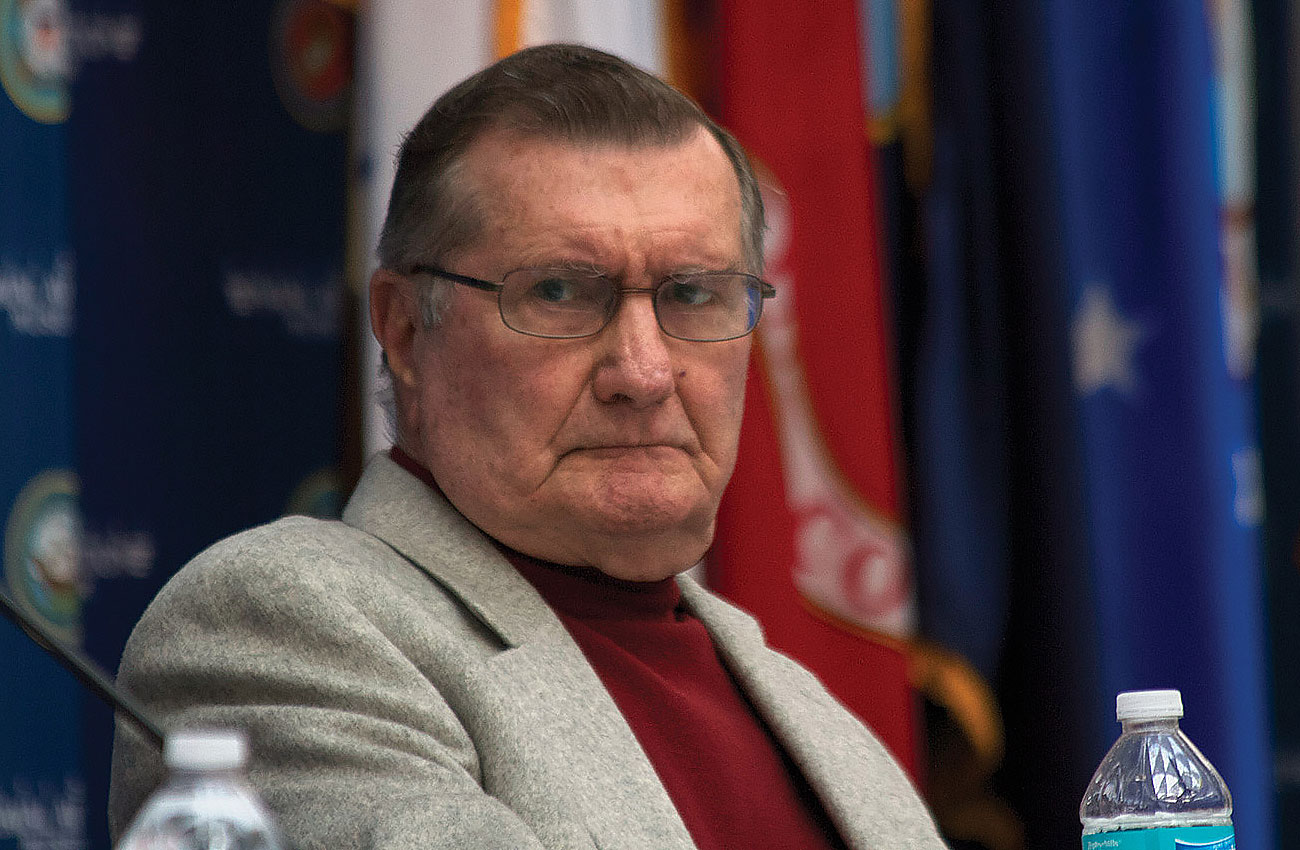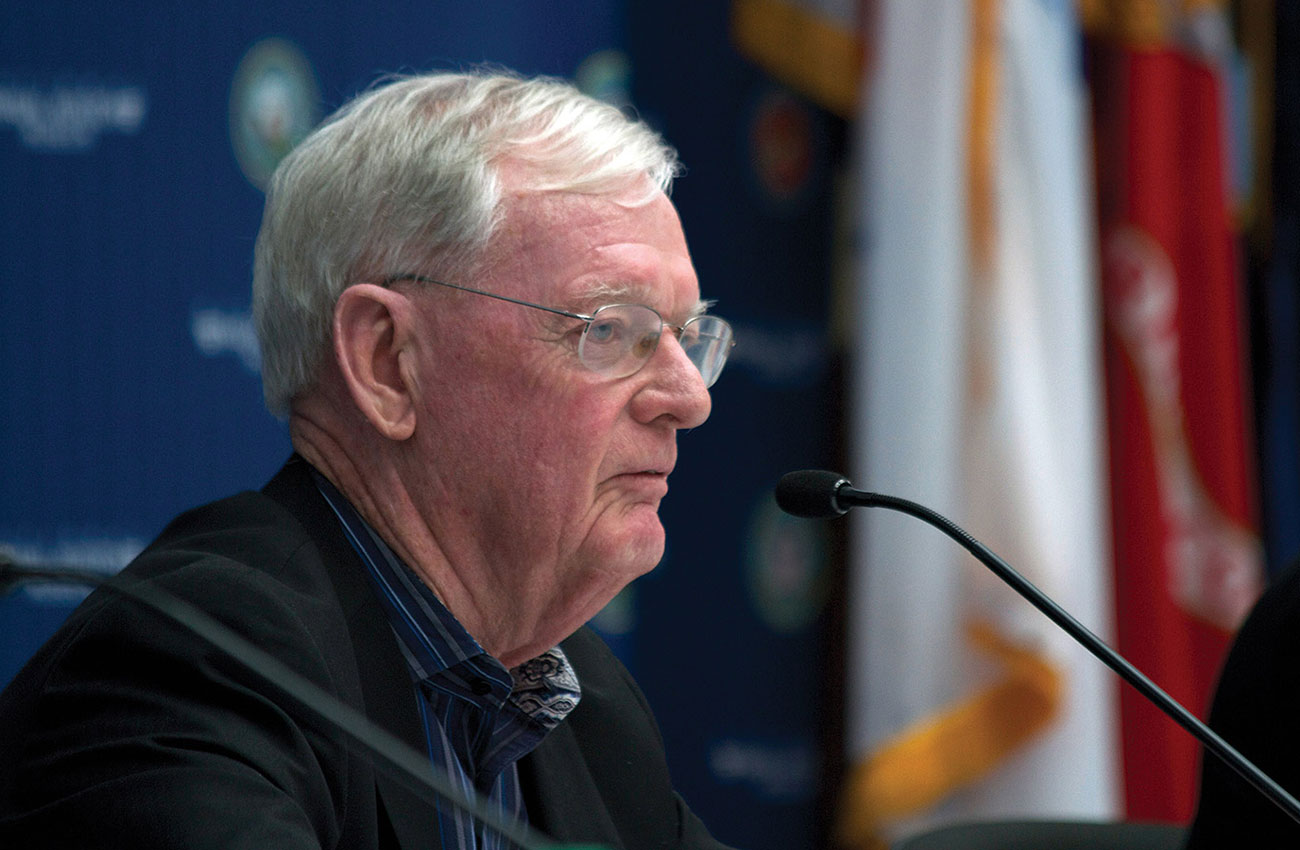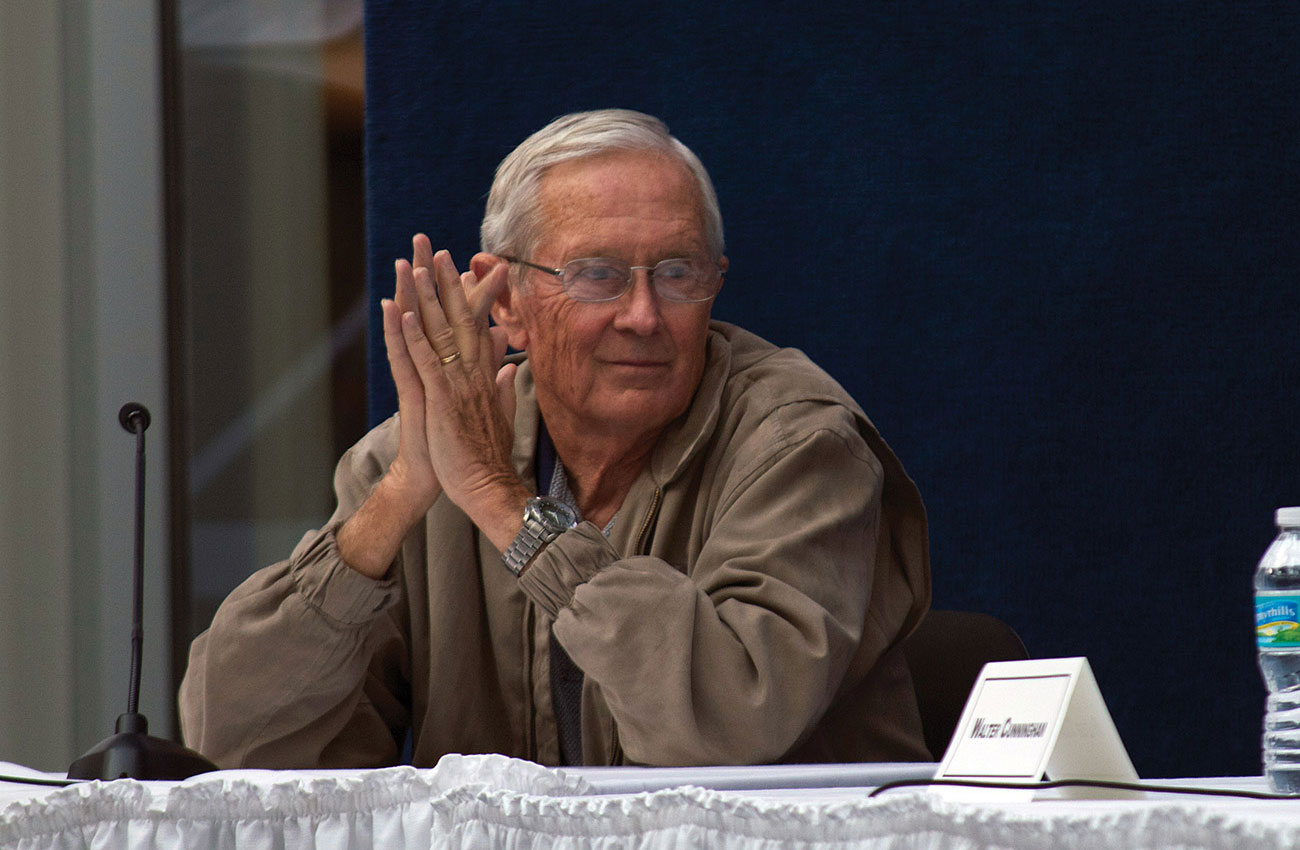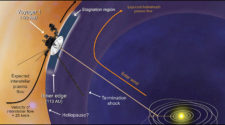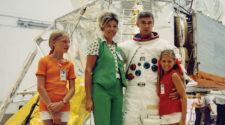The last man to walk on the Moon decided to celebrate the 40th anniversary of this occasion at the place where his flight career started. Held Dec. 15 at the National Naval Aviation Museum, with 1,200 of his friends, the event was split up into several different panel discussions.
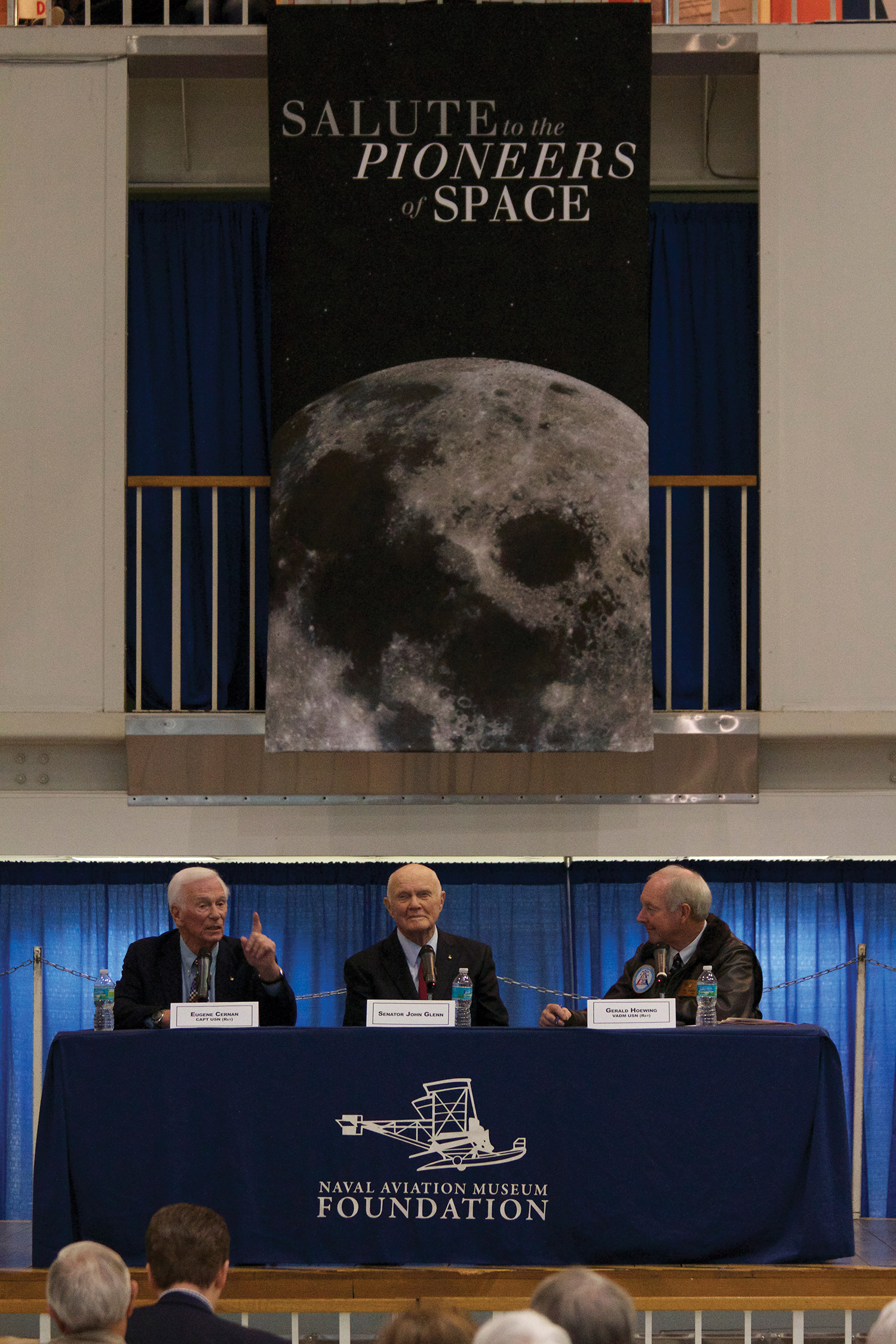
The morning panel included individuals such as Apollo XIII commander James Lovell, Lunar Module Pilot Fred Haise, Flight Controller Eugene Kranz and NASA engineers Glynn Lunney and Gerry Griffin. Each discussed the many events of what went wrong during Apollo XIII and the race to get the crew back home alive. Mentioned was the often forgotten center engine early cutoff of the second stage of the Saturn V. The discussion continued on to the topic of what everyone was doing during the events of Apollo XIII, such as engineers trying to figure out the cause, astronauts testing out the solutions in the simulators, and the mission controllers working problems such as trajectory and other mission parameters.
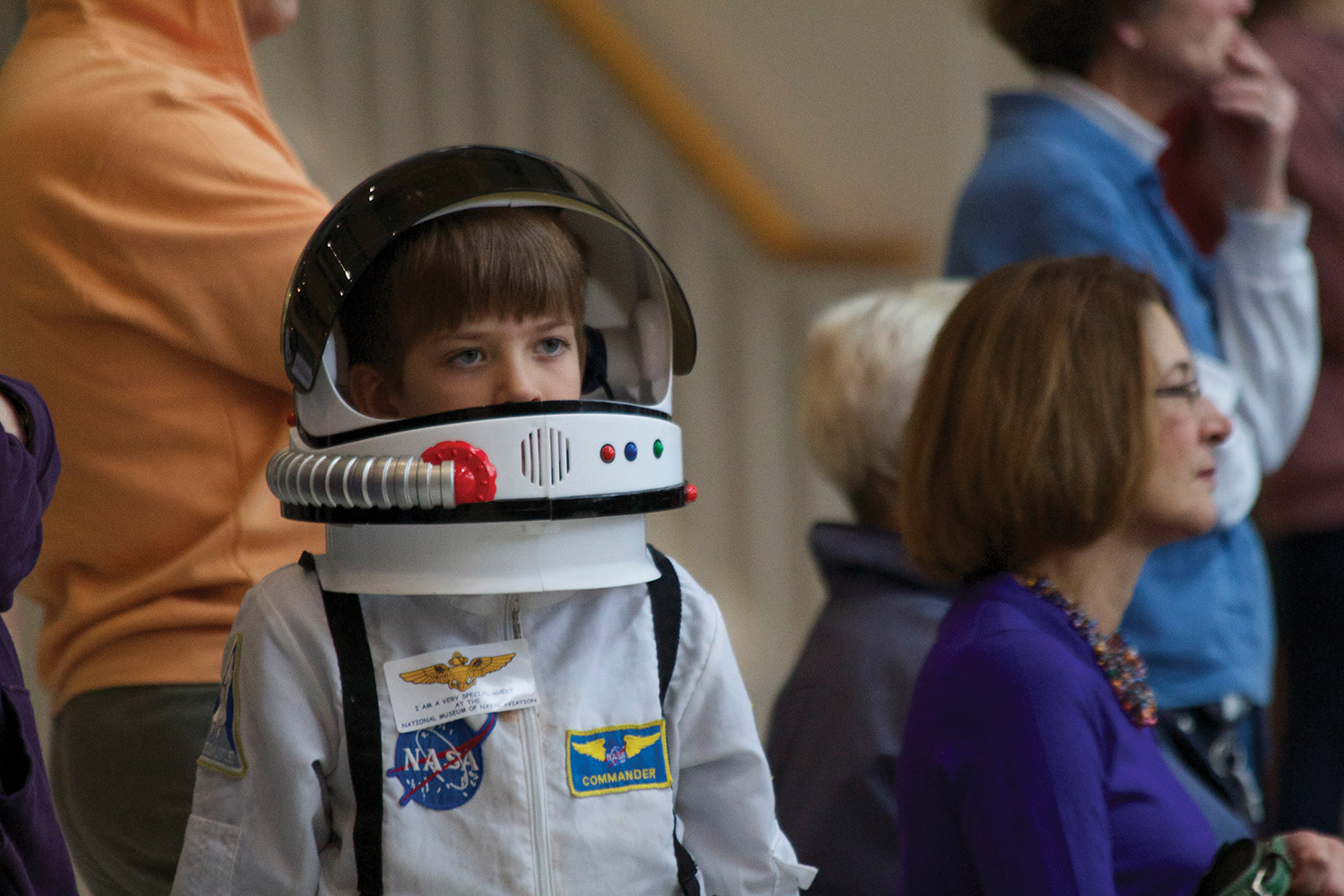
Upon the conclusion of the morning panel guests were treated to a luncheon and panel presentation with speakers Senator John Glenn (first American to orbit Earth) and Captain Eugene Cernan (commander of Apollo XVII and last man to walk on the moon). They discussed their personal experiences in becoming astronauts, such as training at high g-force loads. There were also personal anecdotes where John Glenn mentioned that they wouldn’t let him have a spacewalk during his flight on STS-95 because they were afraid he would “wander off.” Also, Cernan while speaking fondly about the Saturn V called it “his mistress.”
The afternoon panel discussed the events of the Mercury, Gemini and Apollo programs. This panel was hosted by greats such as Charlie Duke, Walter Cunningham, Richard Gordon, Tom Stafford, Cernan and David Scott. The panel focused mostly on the timelines and experiences from the various space programs from Mercury to Gemini to Apollo. There were several comments about the risks that were taken during the various programs, such as the tragedy of the Apollo I fire, the incidents of Apollo 10, 12, & 13, interactions with Mission Control at the Johnson Space Center in Houston, Texas, and other events during the race to the Moon.
On a closing note Cunningham mentioned that now we are “too much of a risk averse society” [in regard to the length of time it takes to design, build and fly spacecraft]. Contrasting that was Cernan who said, “Considering the tail end of Apollo was so long ago, I didn’t think it would take this long, but it isn’t the end. What is going on now is just the beginning.”
As evening fell, a swanky reception was held to unveil a lunar lander replica now on display inside Hangar Bay 1 of the museum in Pensacola, Florida. Afterward, guests were treated to dinner while listening to stories from Cernan and other astronauts.
Quotables
“One of the great legacies of Apollo is that under the right leadership, and willing regard for the future, there isn’t anything we can’t do.”
~Thomas Stafford
“Apollo 13 was a classic case of crisis management. A case where good leadership, not just at the top of the organization but throughout the organization, because leadership fostered teamwork and teamwork was the glue that put Apollo 13 back in the water.”
“The news that Apollo 13 was going to fly was on the 97th page of the New York Times, under the weather.”
~James Lovell
“That’s your identity. That’s home and it’s moving through space with purpose with the Moon in tow. You’re in sunlight but you’re surrounded by blackness, a paradox.”
“I always tell young people to aim for the Moon. I tell them ‘I walked on the Moon before you were born. What can you do?’”
~Gene Cernan
Walter Cunningham“The delay from the Apollo I fire allowed us to get many changes that were turned down due to scheduling. As a result we ended up with a spacecraft that was absolutely marvelous.”
~Walter Cunningham
“One of the things we were trained to do is don’t give up, and just keep working the options. Thankfully on Apollo 13 we never ran out of options. But we did get close.“
“The agency [NASA] was extremely nimble, in that it could move in a hurry and make decisions. It was one of our finest hours.”
~Gerry Griffin
“When you are up there and you look back you are looking at huge swaths of the Earth at one time. And you don’t see the borders. There are no blue nations, no pink nations, no green nations, like there are on a map.”
“You’re going around the Earth once every one hour and 29 minutes and it’s a wonderful experience. You’re going faster than people have ever gone before but you can’t help but look down…and wonder as people why we can’t get along better on this beautiful thing we call Earth.”
“Keep your curiosity. The people I’ve found to be the most productive are the ones with the most curiosity.”
~John Glenn
“The significance of my flight (Gemini XI) was charged with rendezvousing on the first orbit. Due to lunar orbits being so short it was critical we have the skills to rendezvous in a single orbit.”
~Dick Gordon
“[After filling in management on the Apollo XIII situation] management told us, ‘What can we do to help you guys?’ It didn’t hit me at the moment, but they were really saying ‘We trust you guys, and we will find any way we can to help you.’”
~Glynn Lunney

